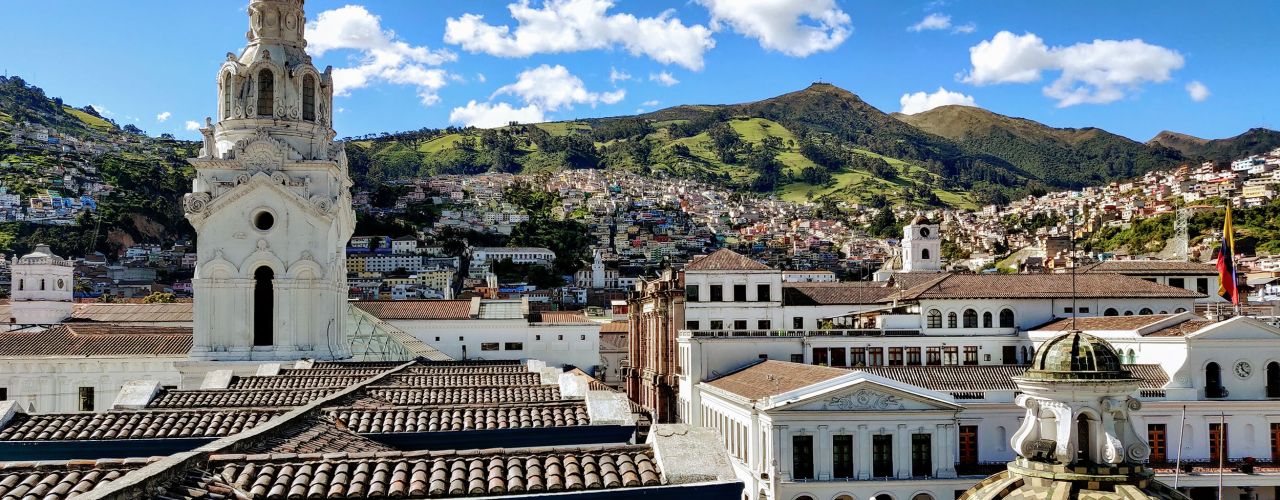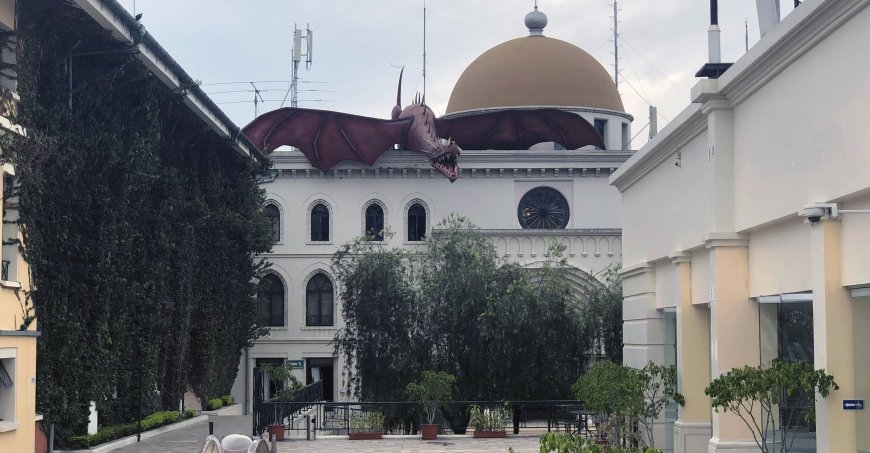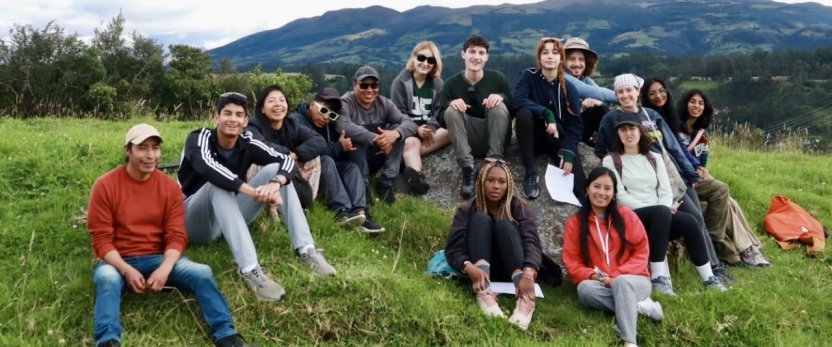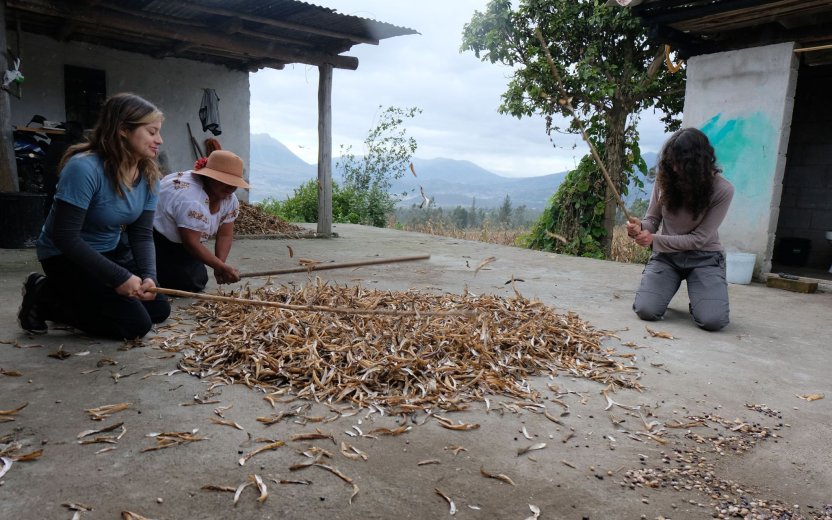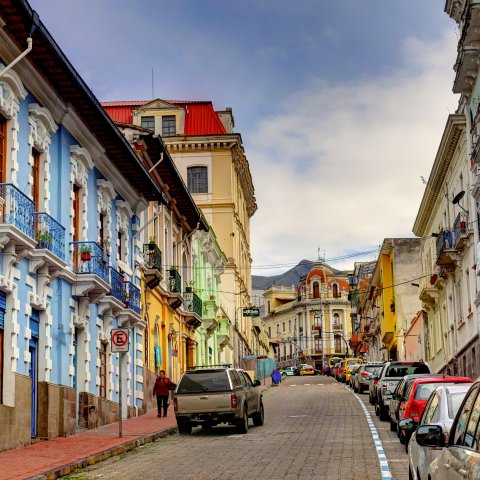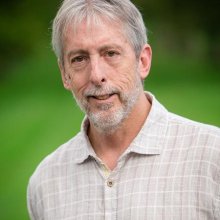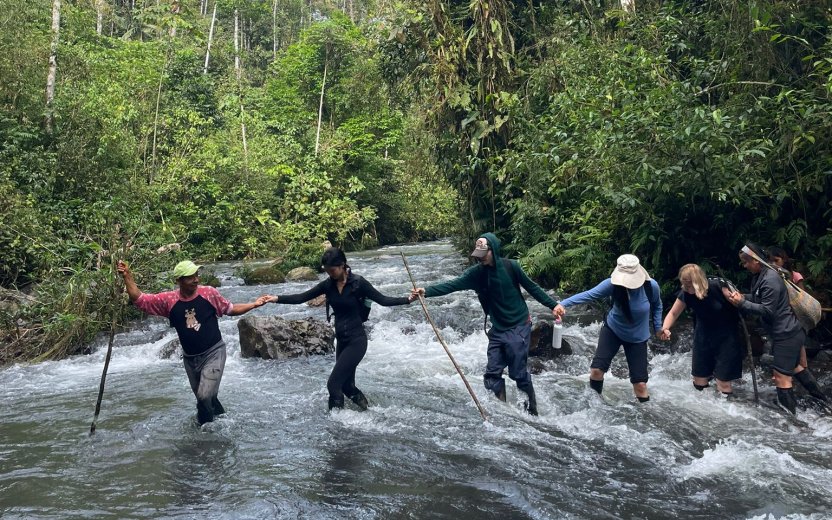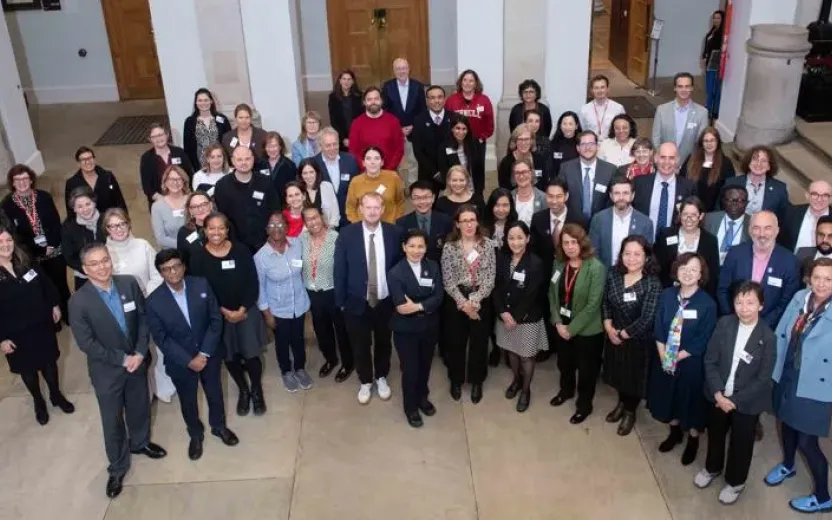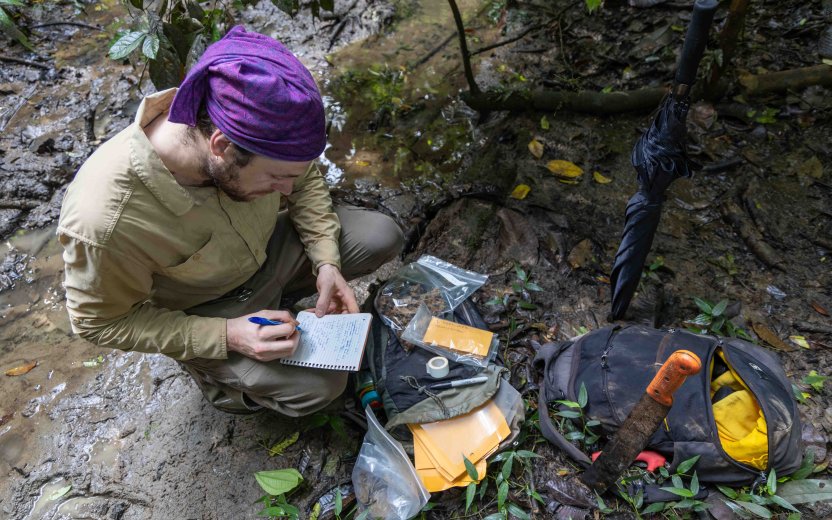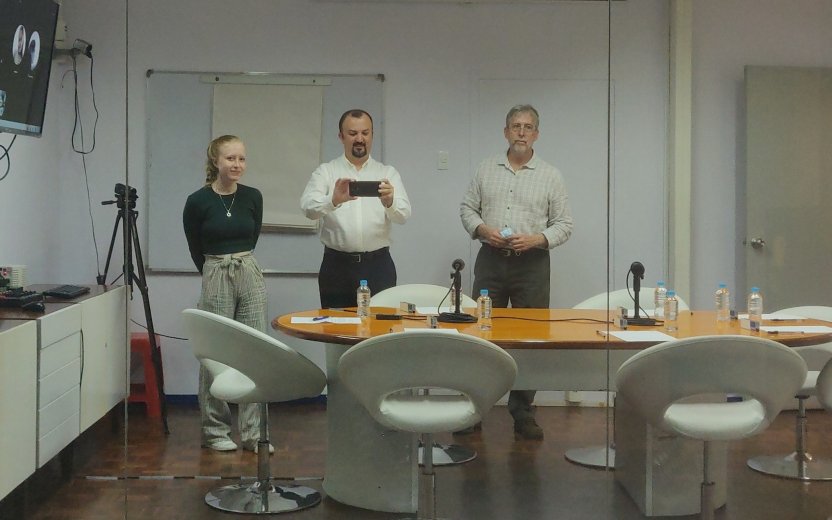Ecuador
Hubs Partner: Universidad San Francisco de Quito
Universidad San Francisco de Quito (USFQ), Ecuador’s first private liberal arts university, is known for its strengths in the biological and social sciences and humanities. With a main campus in Quito, a Galápagos campus, and a research station in the Amazon, USFQ offers unparalleled opportunities for studying biodiversity, conservation, and cultural dynamics. Its international approach and diverse student body create a rich academic environment for local and global scholars.
Fast Facts
28
Outgoing Cornell students for Winter in Ecuador
26
Cornell students for Spring Break in Ecuador
10
Incoming USFQ students for Spring Break in Ithaca
Diverse Learning Environments
USFQ gives students access to two distinct campuses—each providing unique academic and cultural opportunities in extraordinary settings.
The main campus in Cumbayá offers Cornell students an immersive experience with local students on a scenic campus. Students can explore Quito's vibrant neighborhoods and beautiful colonial architecture, a UNESCO World Heritage site.
The Galápagos campus puts students at the center of a pristine natural laboratory in an ecologically fragile site with no permanent residents apart from researchers and tourists. Students also spend time at the Tiputini Biodiversity Station.
Student Experiences
Hub partnerships have enriched students' academic and pre-professional experiences and expanded their opportunities to engage inside and outside the classroom.
Cornell-USFQ Partnership Forges Equity in International Classroom
Supported by a Global Cornell ICC grant, this bilateral student exchange blended collaborative online learning with in-person engagement. In spring 2024, Cornell students traveled to Ecuador for fieldwork, and their USFQ classmates reciprocated by visiting the Ithaca campus. Led by Julie Ficarra and Sofia Villenas, the initiative continues through the Brooks School with a focus on sustainability education. Read more about the exchange.
Five Cornell colleges have sent students to study at USFQ: Agriculture and Life Sciences, Arts and Sciences, Human Ecology, ILR School, and SC Johnson.
Students Engage in Community-Led Sustainability Work in Ecuador
Cornell undergraduates participated in the Laidlaw Leadership and Research Program in Ecuador's Amazon region, where they learned sustainable building practices, co-created a children's book with Kichwa host families, and reflected on their leadership roles. Their work blends cultural immersion and hands-on action in local communities in Quito, Mushullakta, and Pintag.
Read more: Students Learn in Global Communities
"You have to be hands-on and get dirty. You have to know yourself and how you might react to certain situations… But being with my cohort made it a lot better. Getting to know the other Laidlaw scholars better … really enriched the experience." ~Aima Raza '27
Global Internship with K’allam’p: Learning from the Land
Karen Mendoza ’25 interned with K’allam’p, a nonprofit in Ecuador dedicated to regenerative agriculture, social ecology, and integrated resource management.
The word k’allam’p has been used for thousands of years by the Kichwa people of the Andes to describe the relationship between social knowledge and land.
“This internship had a very different structure from my previous jobs, internships, and schoolwork. Here, the results had to come from my passion and desire to make things happen, rather than from meeting expectations set for me. This approach contrasts with professional training that prioritizes workforce preparation over nurturing creativity and passion. I expect to carry this new mindset throughout my career.
During my time in La Sierra, I learned about traditional foods, clothes, music, and festivities—as well as the philosophies and histories embedded in the material expressions we often regard simply as cultural beauty.”
Explore study abroad experiences at Global Hubs
Research Highlights
Collaborative Scholarship on Political Polarization
Cornell’s Ken Roberts and Paolo Moncagatta, dean of social sciences and humanities at USFQ, co-edited a special issue of Latin American Politics and Society on “The New Polarization in Latin America.” Their collaboration also included organizing a panel on the topic at the Latin American Studies Association conference in Bogotá.
Cornell-USFQ Joint Research Seed Grant Awards 2024
"Unveiling Patterns of Anuran Diversity Along Elevational and Microhabitat Gradients in the Cordillera del Cóndor, Southern Ecuador" | Molly Womack (Cornell) and Carolina Reyes-Puig (USFQ)
"From Plate to Planet: Incentivizing Local Food Sourcing for Sustainable Tourism in the Galapagos Islands" | Aaron Adalja (Cornell) and Juan Carlos Valdivieso (USFQ)
"Assessing the Impact of Electoral Cycles on Political Polarization Dynamics" | Santiago Anria (Cornell) and Paolo Moncagatta (USFQ)
"Genomic Characterization of Phenylketonuria and Cystic Fibrosis in Ecuador: Exploring Ancestry and Genetic Diversity for Improved Public Health Outcomes" | Mahboubeh Rahmati Rostami (Cornell) and Vanessa Romero (USFQ)
"Tracing Fish Migrations and Biodiversity Losses Through Community Science in the Ecuadorian Amazon" | Pete McIntyre, Natural Resources and the Environment (Cornell) and Andrea Encalada (USFQ)
Faculty Forward
Cornell Faculty Lead: Kenneth M. Roberts
Richard J. Schwartz Professor, Department of Government, A&S
"Ecuador is an exciting place for a Cornell Global Hub in South America, given the country's remarkable ecological diversity and cultural richness. And USFQ is an outstanding academic and institutional partner for us in Quito. There are long-standing research collaborations between faculty members at Cornell and USFQ, and ample opportunities exist to build on and branch out from these existing relationships.
Cornell faculty and graduate students have conducted research in Ecuador in fields as diverse as riverine and marine ecology, agroforestry, soil, water, and energy conservation, wildlife habitat protection, food sovereignty and sustainable agriculture, natural resource extraction and development policies, law and the environment, public health, participatory community planning, and environmental movements and political polarization in Ecuador. Cornell's partnership with USFQ provides unique opportunities to pursue new research and teaching initiatives in these and related fields."

